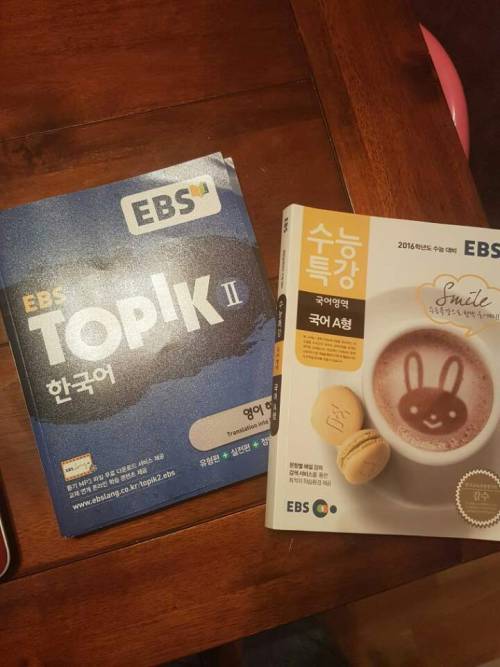#토픽
In today’s Korean lesson we will be looking at the grammar phrase ‘It is pointless to…
You can say this in either three ways:
1) ~기에는 의미가 없다
2) ~는건 무의미하다.
3) ~도 소용이 없다
Let’s look at some example sentences
이대로 공부하다가는 다음주에 볼 시험을 불합격할텐데 지나치게 하기에는 의미가 없어요.
이대로 공부하다가는 다음주에 볼 시험을 불합격할텐데 지나치게 하는건 무의미해요.
이대로 공부하다가는 다음주에 볼 시험을 불합격할텐데 지나치게 해도 소용이 없어요.
All saying: If you study like this you will fail anyway so there is no point in studying so effortly?
앞날의 일은 걱정해도 소용없다
앞날의 일은 걱정하는건 무의미해요
앞날의 일은 걱정하기에는 의미가 없어요.
All saying: It’s pointless to worry about what lies ahead.
So this is a great thing to say when you are giving a speech if you are going to be working in a Korean business.
Lets take a look at some examples.
저는 조만간 아시아 지역에서 영업을 시작하게 될 것을 알려 드리게 되어 기쁩니다.
I am pleased to announce that we will soon begin operating in Asia
저는 테리 레이가 생산 및 마케팅 전무이사를 맡게 된 것을 알리게 되어 아주 기쁩니다.
I am very pleased to announce that Terry Ray has taken on the role of Executive Director of Production and Marketing
존댓말 어휘: Formal Vocab
영업 - Business
조만간: Soon
생산: Production
마케팅: Marketing
전무이사 : Executive director
을/를 맡다 (1): accept a role of / take on the role of.
맡다 also has other meanings but we will get on to that later
-강태빈
[Credit to Naver Dictonary]
IToday we are gonna look at one of the most used words in Korean.
그대로 / 이대로/저대로.
Think of 그대로 as 그렇게 ,이대로 as 이렇게, and 저대로 as 저렇게 They have the same meanings but 그대로, 이대로 are stating it as a form or a way.rather than being straight forward as 이렇게 그렇게, 저렇게 .
Let us look at some sentences
그대로:
한: 무서워하지 말고 있는 그대로말해.
영: Don;t be scared just say it as it is
한: 그냥 그들 그대로 내버려 둬
영: Please just leave the things as they are
한: 정말 네가 말한 그대로다.
영: It is just as you said.
한: 이 문장을 문자 그대로영역하시오
영: Translate this sentence into English word for word.
Vocab using 그대로:
그냥 그대로 있다 - To remain as it is
문자 그대로 영역하다 [영어 +번역하다] - To translate in English word for word
문자 그대로 한역하다 - Translate into Korean word for word
문자 그대로 일역하다 - Translate into Japanese word for word.
있는 그대로 - As it is
이대로: Like this / This way
한:그 문장은 이대로도 의미가 통한다
영: The sentence does make sense even as itnow
한:이대로라면 만사가 끝장이다
영: If things go on like this, everything will be ruined
한:이대로 놔두면큰일나겠다
영:If we leave it like this, it will grow into a serious matter.
Vocab using 이대로:
이대로도: Even as it is
이대로라면 : If things are like this.
이대로 놔두면: If sm leaves it like this
만사: Everything
끝장이다 - Ruined
의미가 통한다 - To make sense
저대로:Like that/ That way/as it is
한: 저대로가 좋다
영: I like that better as it is
한: 그 사건을 저대로두어서는 안 된다
영: The matter cannot be allowed to stand as it is.
Vocab using 저대로:
저대로두어서는 안 된다 - not allowed to stand as it is
사건 : Matter
[Credits to Naver Dictionary, Daum Dictionary]
PS. What I mean by vocab using, is that it is just vocab used in the sentence it doesn’t have to go with 그대로,이대로,저대로
This one is used to explain the situation of something that you did in the past/will do later on/ or are doing/. it is similar to even though ( I don’t know what your reasons are ! X) )
제가 1년동안 한국에서 살기는 했지만 아직도 한국말을 잘 못해요
I have lived in Korea for a year but I still can’t speak korean .
서울 항공원 (비행기표) 는 비싸기는 하겠지만 살거에요
The plane ticket to seoul is expensive but I will buy it.
저는 한국 사람이기는 하지만 김치를 먹기 싫어요 I am korean but I hate to eat kimchi.
- 강태빈
In this lesson we will be looking at the grammar structure “전에 ~하지 않았어요?” This is used to ask a question about what someone has done in the past
A: 엘라, 전에 케이팝을 좋아하지 않았어?
B: 응 근데 이제는 요즘 중국 음악을 자주 들어.
영어 해설:
A: Ella, didn’t you used to like K-pop?
B: I used to but now I listen to Chinese music often these days
And that’s how it goes ^^
- 강태빈
How I study for TOPIK II Exam. 한국어능력시험II를 위해 공부하는법
Hello guys so another blog post from me. I would first of all say thank you so much for the support and I will be using this blog for my application for university this year, so please keep supporting me! Thanks you to you guys I will be able to study Korean language at university and go to Korea university.
Anyway, I am currently studying for TOPIK II exam, since I dropped computer science (My school told me to drop it because I study too much, apparently going home at 5pm and studying until 5am isn’t healthy) I decided to take up the TOPIK II exam to prove my language ability to the university. I am currently working with my Korean language tutor who is also my engineering tutor, to get a Level 4 on my TOPIK II exam. I have been studying alot and actually been using my own blog as a form of revision.
In the picture above you see two books. On the left is the book that i got for my birthday from my girlfriend, its a brand new book from EBS and you can only get it in Korea. On the right you have the EBS Korean entrance examination(수능) Korean textbook that i got when i was in Korea. Even though I am not a native fluent speaker, it is still a good way to study Korean. Lets take a look inside.
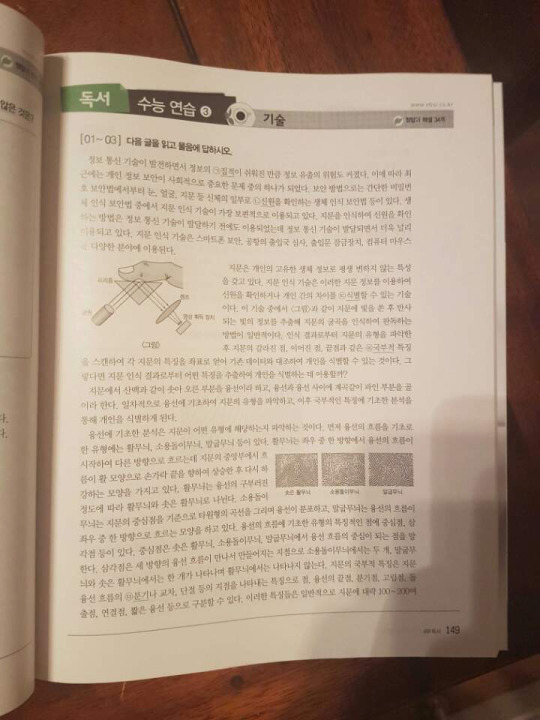
Here we have the 수능 textbook. The textbook asks me to read the paragraph and answer the questions on the back. This paragraph is on technology because it says 기술 in Korean which also means technology (and also a skill). I would read it all once first, then read it again sentence by sentence highlighting words and phrases i don’t know. Since the TOPIK II is from intermediate to fluency, these phrases could come up in the exam!
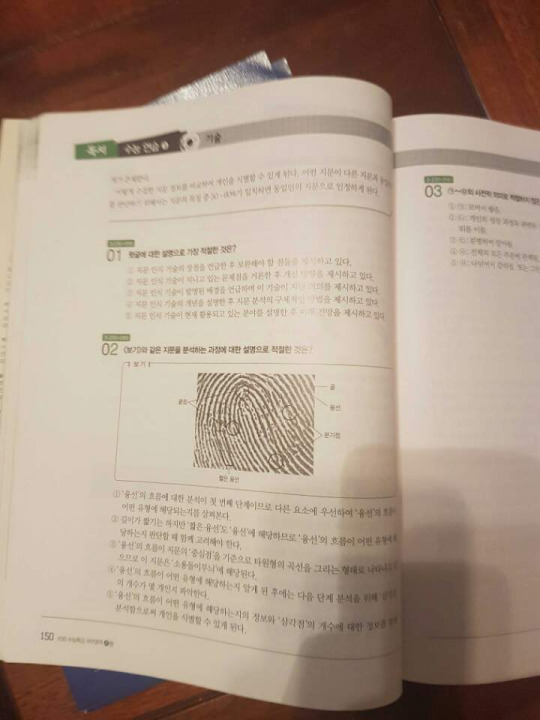
And then i answer the questions. Now i am only working for Level 4 but my teacher said we should always aim higher to be on the safe side, so that is why i am studying the 수능 textbooks. I also study Korean geography!
So after i answer these, I check in the answer book provided and i read the explanations. This requires me to use Naver dictionary app A LOT!
There will be some questions I get right, and some that are wrong, what can i say?I am not fluent yet! :D
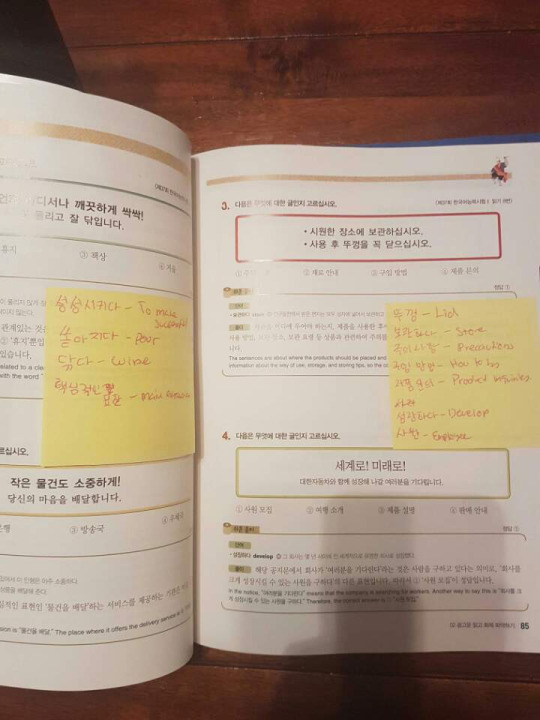
Above is now the TOPIK II Textbook! This has English translation so it is good for any level that are using TOPIK II.
Here it speaks for itself, I just write down the words i don;t know and answer the text questions.
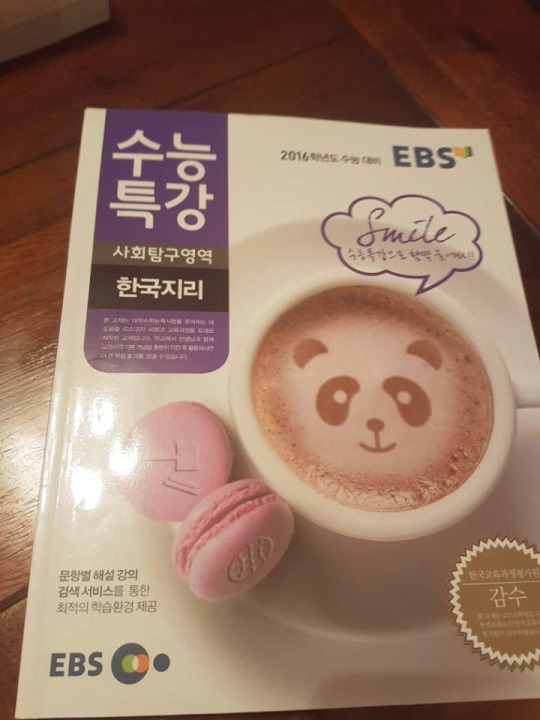
Here is another 수능 textbook i study from, and it is Korean Geography which i mentioned earlier.
This one is quite very difficult to understand. So this one I really have to study the vocab hard! tbh it hurts my head alot. I’m not studying for 수능 I am studying for Topik.

Here is what the questions look like in the book
-강태빈Post link
Time to change the style of the way i try to explain things really.
Instead of giving you English translation of sentences of what they mean in Korean, I want to make sure you understand it yourselves.
Instead of translating I will show you when to use it. These can be meaning in the past tense but I think it is much easier to use it in the future tense, There other ways to use If in the past tense
다 보면 = If you keep, continue. V
톰은 이렇게 한국말을열심히공부하다 보면 미래에는 한국인처럼 유창히 얘기할수 있을것 같아요. In speech ‘을’ can be taken out
I thinkif tom continues study Korean hard like this, In the future he will be able to talk Korean fluently like native Korean person.
In this case
Speaker: If tom does continues something, In the future he can do this.
That is as simple as I can get it
This is hard to explain so I will just use examples and home you can get a feel of what i means.
그는 당신을 깨우고 싶지 않아 했어.
Hedidn’twanttowakeyou
왜 나한테 키스하고 싶지않아 했어?
Why didn’t you want to kiss me?
그러나 대부분의 사람들은 그저 듣고 싶지 않아했어.
But most don’t want to listen.
엄마가 나한테 내가 한국에서 공부를하고 싶지 않아한다고 그랬어요.
Mother said to me that she did not want me to study abroad in Korea.
Here is the slang that is trending in Korea.
Another 꿀팁 from me and my Girlfriend.
넘나 예쁜것 / 잘생긴것 / 좋은것
Such a pretty / handsome/ good thing etc….
텍스트말
ㅇㅈ = 인정 Admit
E.G: 이 쿠키 엄청 맛있어! ㅇㅈ
I admit this cookie is so yummy.
ㅇㅈ? (Don’t you think so too?)
ㅈㄴ: 존나 (F*cking)
ㅁㅊ: 미친 This is insane / crazy
ㅁㅊ, ㅈㄴ, ㅇㅈ these are very common
포기각: I am about to ~~~
포기각 = I am about to give up / I feel like giving up
: 자살각 = I feel like dying / I’ll kill myself
각 is only used at the now.
E.G
쿠키각 (I want to eat a cookie so badly)
백화점각 (I want to go to department store badly)
서울각 (I want to go to Seoul so badly)
——
Other Slang
꼰대 = Old people who that always try to teach young people (in a bad way)
Typical 꼰대 is : can be a grandfather or old guy,or teacher etc..
인생(Noun) = something you want for ever or will love fore life
인생노래 = Song you will love for life/ cant live without
인생과자 = Snack you cannot live without
인생템 = Item you cannot live with out
etc…..
Hello
For those who have very little Korean vocabulary this song is very basic.
Grammar / Vocab points in this song to get a general message
달콤하다 - To be sweet
잘자요 - Good Night
우리 - My, Our
아기 - Baby
잠든 모습 - Slumbering state/ appearance
들리다 - Listening
얘기 = Talk
처럼 - Like
입술 - Lips
을 위한 - For someone/ or something
마음 = Heart / Mind
잠이 들기 전에 = Before you go to sleep
자정가 - Lulluby
언어로 - In a language
Okay last grammar for today is going to be V기만하면 which means ‘as long as you/she/he/i do something )
There is really no need for explanation as the title explains itself
Iam going to be using ‘뭐뭐뭐’ which is meaning Blah Blah Blah.
난 한국어를 열심히 공부하기만 하면 뭐뭐뭐뭐 // As long as I study Korean hard Blah Blah BLah.
넌 미안한다고 말하기만 하면 뭐뭐뭐뭐 // As long as you say sorry to me blah blah lah
and with no 하다 verbs like 가다
you can say
슈퍼마켓으로 가기만 하면 뭐뭐뭐뭐뭐 // As long as I go to the super market Blah Blah Blah

